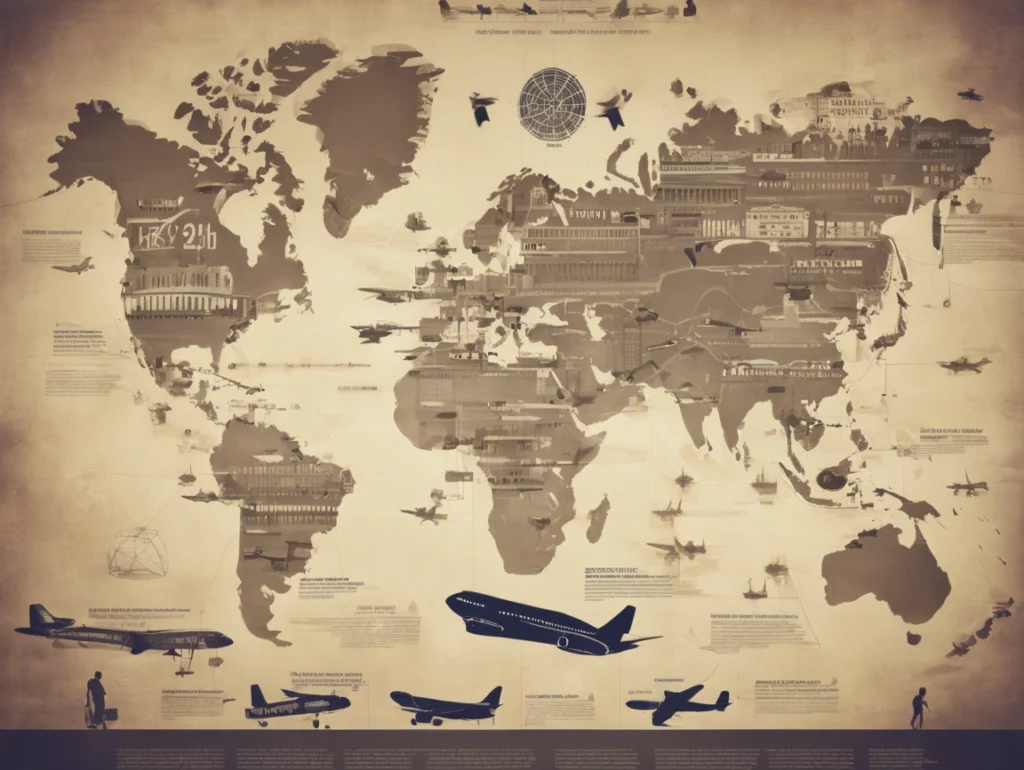Introduction
The airline industry is a vital component of global transportation, connecting people and cultures like never before. Understanding its history and significance can help aviation students and enthusiasts appreciate the complexities of modern air travel and its future prospects. In this blog, we will delve into the history of airlines, their impact on contemporary society, the need for air travel, and what the future holds for this dynamic industry.
A Brief History of Airlines
The journey of airlines began in the early 20th century, with the first scheduled air services emerging in the 1910s. Henri Fabre made the first powered flight in 1910, and St. Petersburg-Tampa Airboat Line became the first scheduled air service in 1914, operating a route between Florida’s St. Petersburg and Tampa.
In the 1920s, airlines began to flourish, with notable establishments like KLM (Koninklijke Luchtvaart Maatschappij) being founded in 1919, making it the world’s oldest airline still operating under its original name. The late 1930s saw the introduction of modern aircraft, such as the Douglas DC-3, which revolutionized commercial air travel.
The Impact of Airlines on Modern Society
Today, airlines play a critical role in global connectivity. They enable business travel, tourism, and cultural exchange, contributing significantly to the global economy. The airline industry supports millions of jobs, directly and indirectly, from pilots and flight attendants to airport ground staff and hospitality services.
Air travel has shrunk the world, allowing people to traverse continents in mere hours. The industry’s expansion has led to a surge in tourism, significantly impacting local economies and cultural exchanges.
The Need for Airlines
In a rapidly globalizing world, the need for airlines is more pressing than ever. Here are several reasons why:
- Global Trade: Airlines facilitate the movement of goods and services, making international trade feasible.
- Emergency Response: Airlines are crucial in disaster relief efforts, providing swift transportation of aid and medical supplies.
- Cultural Exchange: Air travel fosters cultural exchange, allowing people to experience different lifestyles and traditions, promoting understanding and tolerance.
The Future of the Airline Business
The future of airlines is promising yet challenging. With advances in technology, sustainability, and changing consumer preferences, airlines must adapt to remain competitive. Some trends shaping the future include:
- Sustainable Aviation: The industry is increasingly focused on reducing its carbon footprint through sustainable aviation fuels and more efficient aircraft designs.
- Technological Advancements: Innovations in artificial intelligence, big data, and automation are transforming operations, from ticketing to customer service.
- Personalized Experiences: Airlines are leveraging data analytics to offer personalized services, enhancing the overall passenger experience.
Why Should We Know About Airlines?
Understanding the airline industry is essential for several reasons:
- Career Opportunities: For students pursuing careers in aviation, knowledge of industry trends and history can provide valuable insights.
- Consumer Awareness: Being informed about airline operations helps consumers make better travel choices, including understanding safety protocols and service quality.
- Global Citizenship: Recognizing the role of airlines in connecting the world fosters a sense of global citizenship, encouraging individuals to explore and engage with different cultures.
Aviation: A Clear Concept
Aviation refers to the design, development, operation, and use of aircraft, particularly heavier-than-air aircraft. It encompasses a wide range of activities, including commercial airlines, cargo transport, military operations, and recreational flying. Key components of aviation include:
- Air Traffic Control: Ensures safe and efficient movement of aircraft in the skies.
- Aircraft Operations: Encompasses flight planning, maintenance, and piloting.
- Safety Regulations: Governed by organizations like the International Civil Aviation Organization (ICAO) and national authorities to ensure passenger safety.
Relevant Topics for Aviation Students
For aspiring aviation professionals, several key topics are essential to explore:
- Aircraft Design and Engineering: Understanding the mechanics and aerodynamics involved in aircraft construction.
- Airline Management: Learning about operational management, marketing strategies, and customer service.
- Aviation Safety and Regulations: Familiarity with safety protocols and regulatory frameworks governing the industry.
- Air Cargo Operations: Exploring the logistics and management of cargo transport.
- Sustainable Practices: Studying the importance of environmental considerations in aviation operations.
The evolution of airlines has significantly shaped modern society, enabling global connectivity, trade, and cultural exchange. Understanding the history, current trends, and future prospects of the airline industry is essential for anyone interested in aviation. As we move forward, a commitment to sustainability and innovation will define the future of air travel. By recognizing the vital role airlines play, we can appreciate the significance of aviation in our lives and the world around us.

